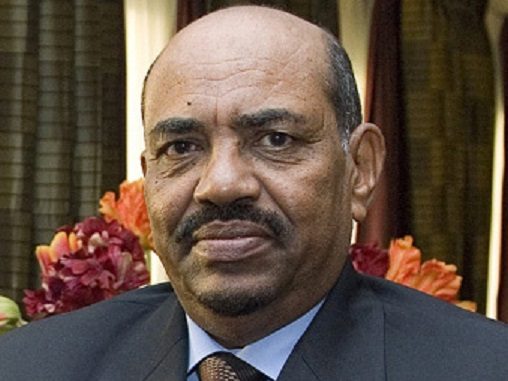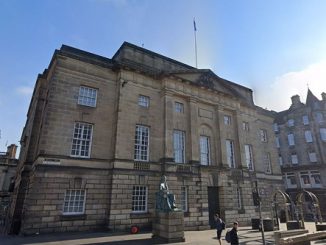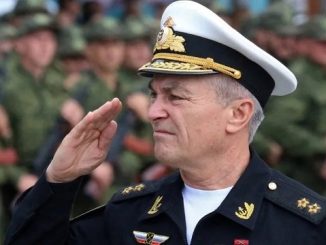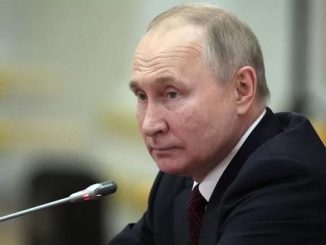
September 13, 2018
Omar Hassan Ahmad al-Bashir is a Sudanese politician, the president of Sudan and head of the National Congress Party. He came to power in 1989 when, as a brigadier in the Sudanese Army, he led a group of officers in a military coup that ousted the democratically elected government of prime minister Sadiq al-Mahdi after it began negotiations with rebels in the south.
In March 2009, al-Bashir became the first sitting president to be indicted by the International Criminal Court (ICC), for allegedly directing a campaign of mass killing, rape, and pillage against civilians in Darfur.
The first warrant for arrest for Omar Hassan Ahmad al-Bashir was issued on 4 March 2009, the second on 12 July 2010. The arrest warrant is supported by NATO, the Genocide Intervention Network, and Amnesty International.
The second warrant, as with the first, were delivered to the Sudanese government, which did not recognize it nor the ICC. Sudan is not a state party to the Rome Statute establishing the ICC, and thus claims that it does not have to execute the warrant.
In issuing the warrant, the ICC Pre-Trial Chamber stated that there are reasonable grounds to believe that:
- From March, 2003 to at least 14 July 2008, a protracted armed conflict not of an international character existed in Darfur between the Government of Sudan (GoS) and several organised armed groups, in particular the Sudanese Liberation Movement/Army (SLM/A) and the Justice and Equality Movement (JEM).
- Soon after the April, 2003 attack on the El Fasher airport, Omar al-Bashir and other high-ranking Sudanese political and military leaders of the GoS agreed upon a common plan to carry out a counter-insurgency campaign against the SLM/A, the JEM and other armed groups opposing the Government of Sudan in Darfur.
- A core component of that campaign was the unlawful attack on part of the civilian population of Darfur – belonging largely to the Fur, Masalit and Zaghawa groups – who were perceived to be close to the organised armed groups opposing the Government of Sudan in Darfur. The campaign was conducted through GoS forces, including the Sudanese Armed Forces and their allied Janjaweed militia, the Sudanese Police Forces, the National Intelligence and Security Service (NISS) and the Humanitarian Aid Commission (HAC). It lasted at least until the date of the filing of the Prosecution Application on 14 July 2008.
- During the campaign, GoS forces allegedly committed crimes against humanity, war crimes, and crimes of genocide, and in particular:
- carried out numerous unlawful attacks, followed by systematic acts of pillage, on towns and villages, mainly inhabited by civilians belonging to the Fur, Masalit and Zaghawa groups;
- subjected thousands of civilians – belonging primarily to the Fur, Masalit and Zaghawa groups – to acts of murder, as well as to acts of extermination;
- subjected thousands of civilian women – belonging primarily to the said groups – to acts of rape;
- subjected hundreds of thousands of civilians – belonging primarily to the said groups – to acts of forcible transfer;
- subjected civilians – belonging primarily to the said groups – to acts of torture; and
- contamined the wells and water pumps of the towns and villages primarily inhabited by members of the Fur, Masalit and Zaghawa groups that they attacked; and encouraged members of other tribes, which were allied with the GoS, to resettle in the villages and lands previously mainly inhabited by members of the Fur, Masalit and Zaghawa groups.
Pre-Trial Chamber I also found that there are reasonable grounds to believe that:
- Omar al-Bashir, as the de jure and de facto President of the State of Sudan and Commander-in-Chief of the Sudanese Armed Forces at all times relevant to the Prosecution Application, played an essential role in coordinating the design and implementation of the common plan;
- and, in the alternative, that Omar al-Bashir also:
- played a role that went beyond coordinating the implementation of the said GoS counter-insurgency campaign;
- was in full control of all branches of the “apparatus” of the State of Sudan, including the Sudanese Armed Forces and their allied Janjaweed militia, the Sudanese Police Forces, the NISS and the HAC; and
- used such control to secure the implementation of the said GoS counter-insurgency campaign.
Pre-Trial Chamber I found that there are reasonable grounds to believe that Omar al-Bashir acted with specific intent to destroy in part the Fur, Masalit and Zaghawa ethnic groups.
Until Omar al-Bashir is arrested and transferred to the seat of the Court in The Hague, the case will remain in the Pre-Trial stage. The ICC does not try individuals unless they are present in the courtroom.
Since the warrants were issued al-Bashir has visited China, Nigeria, Saudi Arabia, United Arab Emirates, Egypt, Ethiopia, Kenya, Qatar and several other countries. which refused to arrest him and surrender him to the ICC upon arrival. ICC member state Chad also refused to arrest al-Bashir during a state visit in July 2010.
Luis Moreno Ocampo and Amnesty International claimed that al-Bashir’s plane could be intercepted in International Airspace. Sudan announced that the presidential plane would always be escorted by fighter jets of the Sudanese Air Force to prevent his arrest.
In March 2009, just before Bashir’s visit to Qatar, the Sudanese government was reportedly considering sending fighter jets to accompany his plane to Qatar, possibly in response to France expressing support for an operation to intercept his plane in international airspace, as France has military bases in Djibouti and the United Arab Emirates.
World Justice News shows the International Criminal Court sessions free. For the link to view the Omar al-Bashir Pre-Trial Hearing please click here to see our daily schedule.






Be the first to comment